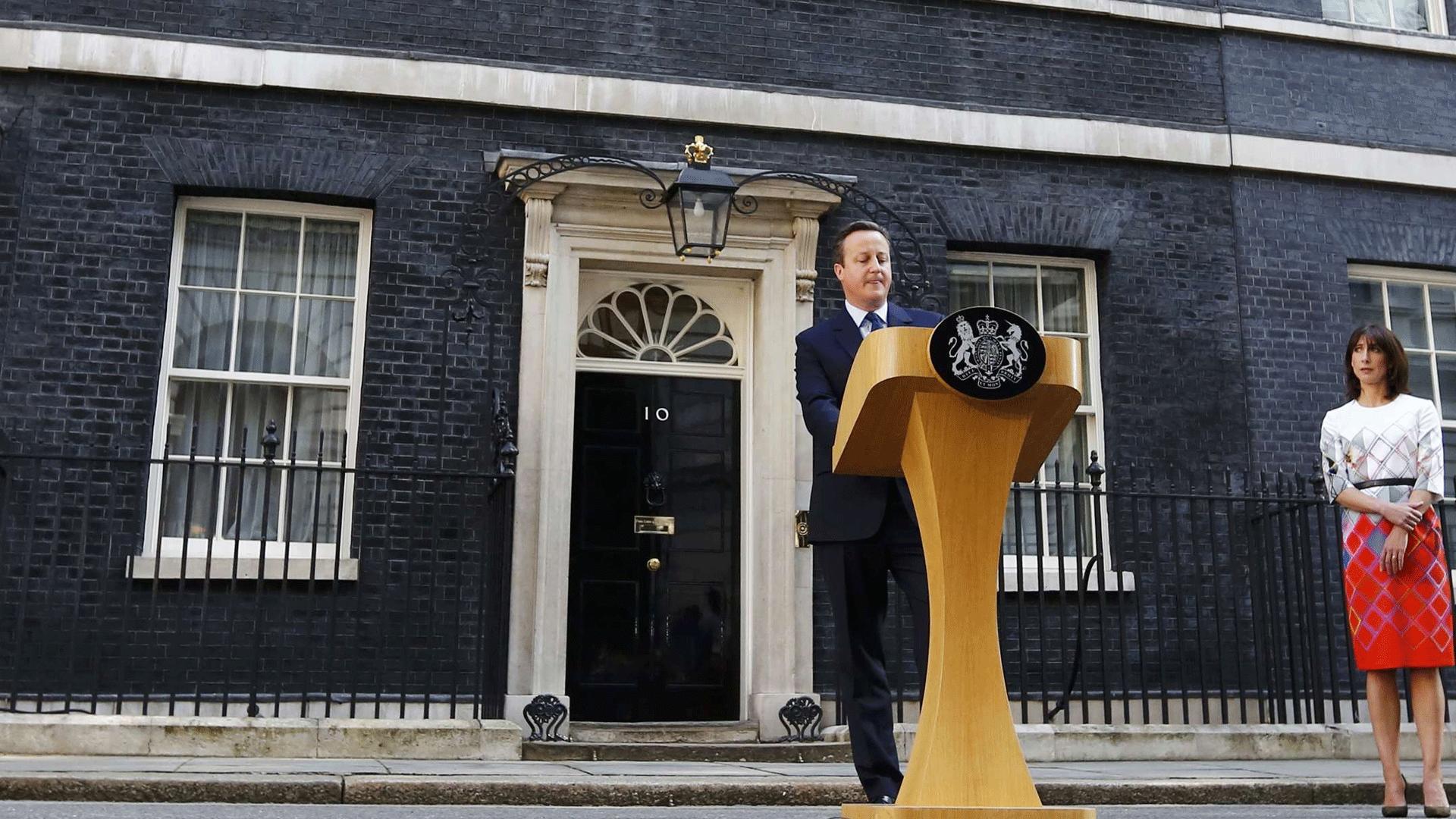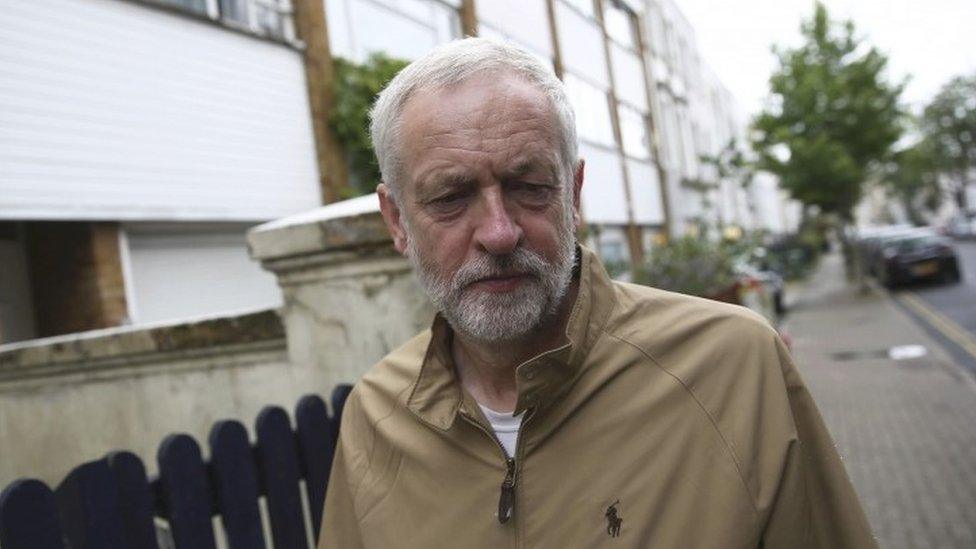Brexit: Boris Johnson says UK not 'turning its back' on Europe
- Published
Boris Johnson: "There is no need for haste"
Boris Johnson has insisted the UK is not "turning its back" on Europe after its decision to vote to leave the EU.
The decision would not make the UK any less tolerant nor outward looking and would not reduce opportunities for young people, the ex-London mayor said.
The UK, he added, had a "glorious opportunity" to take control and "take the wind out of the sails" of those "playing politics" with immigration.
Mr Johnson has been installed as the bookies' favourite to succeed the PM.
The former Conservative mayor of London has been installed as favourite to take over as Conservative leader after Mr Cameron announced he would step down by October, but he declined to comment on the issue.
In a statement to the media in London - his first comments since the result of the referendum - he praised Mr Cameron's "extraordinary" leadership of the country over the past six years, describing him as a "brave and principled man".
He said he was saddened by the PM's choice to stand down later this summer, but respected his decision.
Mr Johnson, who was mayor of London from 2008 until May this year, sought to reassure people about the UK's future after the Brexit vote, saying "nothing would change over the short term" and there was "no haste" in triggering the legal process for exit talks.
'No less united'
Reaching out to those who voted for the UK to remain, particularly young people who are thought to have backed staying in, he said the UK would still have a strong voice in global affairs as an economic powerhouse and a compassionate and open-minded nation.
"To those who may be anxious, whether at home or abroad, this does not mean that the United Kingdom will be in any way less united, nor indeed does it mean that it will be any less European... that this decision involves pulling up a drawbridge or some sort of isolationism - I think the opposite is true. We cannot turn our backs on Europe. We are part of Europe."
While the EU was a "noble ideal for its time" it "was no longer right for this country", he said.
"We can find our voice in the world again, a voice that is commensurate with the fifth-biggest economy on Earth," he said. "I believe we now have a glorious opportunity: we can pass our laws and set our taxes entirely according to the needs of the UK economy."
Earlier, as he left his home on Friday Mr Johnson was mobbed by reporters and booed by some members of the public in a sign of how fractious the campaign became.
An angry crowd booed Boris Johnson as he left his north London home
The BBC's political editor Laura Kuenssberg said she understood Mr Johnson was unlikely to say anything about the leadership before Monday at the earliest.
Mr Johnson is currently not a member of the government although he has been attending meetings of David Cameron's political cabinet since the 2015 general election, at which he was re-elected to Parliament as MP for Uxbridge and South Ruislip.
Laura Kuenssberg said the party's 1922 committee would set the rules and timetable for the contest.
When Mr Cameron was elected in 2005, a ballot of MPs took place to select the top two candidates, who then went into a run-off election in which all Conservative Party members had a vote.
- Published24 June 2016

- Published19 June 2016
